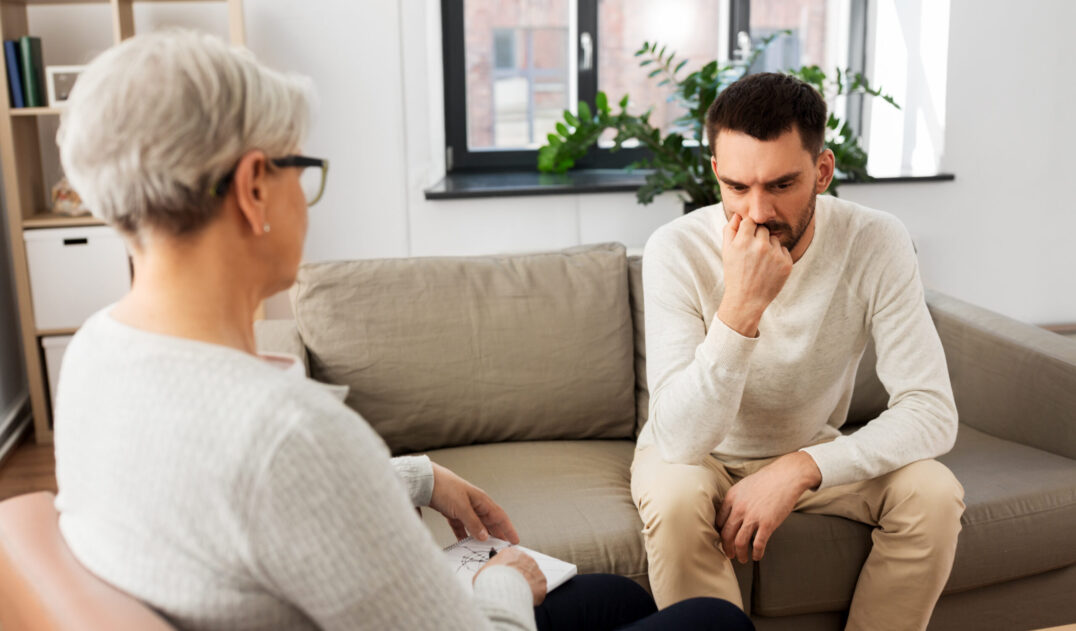Treating Anxiety Disorders
There are various methods for treating anxiety disorders. Treatment plans vary depending on the type of anxiety disorder, as well as the individual’s needs. While it is common for people to experience occasional anxiety, those with anxiety disorders experience persistent symptoms that interfere with daily activities. Luckily, treatment is available and has been proven beneficial for many.
Psychotherapy
Psychotherapy, also known as “talk therapy,” allows individuals to work directly with their healthcare provider to reduce anxiety symptoms. There are many types of psychotherapy all with their own benefits, but the most commonly used for the treatment of anxiety disorders is cognitive behavioral therapy (CBT). CBT helps one take a new perspective in their thoughts, behaviors, and reactions. After learning these skills, many individuals find that their anxiety symptoms decrease and become more manageable. Another type of psychotherapy commonly used in the treatment of anxiety disorders is acceptance and commitment therapy (ACT). ACT aims to help reduce anxiety and discomfort through mindfulness and goal setting.
Medication
Medication can also be used to help individuals struggling with an anxiety disorder. However, it is important to note that medications often can have side effects, so it is important to speak with your healthcare provider about any concerns you may have.
Antidepressants and anti-anxiety medications are both commonly used to treat anxiety disorders. Antidepressants are used to treat depression, but they can also decrease many symptoms of anxiety disorders.
Anti-anxiety medications help decrease symptoms of anxiety including panic attacks, extreme worries, and more. Benzodiazepines may be used to help manage anxiety symptoms. Although benzodiazepines can be very beneficial and quick acting, they are typically only prescribed in short-periods of time due to how easily one can build a tolerance and dependence for the medication.
Complementary and Alternative Treatments
In addition to psychotherapy or medication, many people have turned to complementary and alternative treatments. These treatments vary but include:
- Stress relief and relaxation techniques that are aimed at calming the mind and body.
- Self management plans to help gain control over the day.
- Exercise even in small amounts can often reduce anxiety symptoms.
Finding TREATMENT AND RESOURCES
- To learn more about anxiety disorders and how they can be treated, we recommend contacting your health care provider.
- To read more, the following resources are suggested:
Return to home page: https://nwmind-bodywellness.com/
Read more articles: https://nwmind-bodywellness.com/articles/
